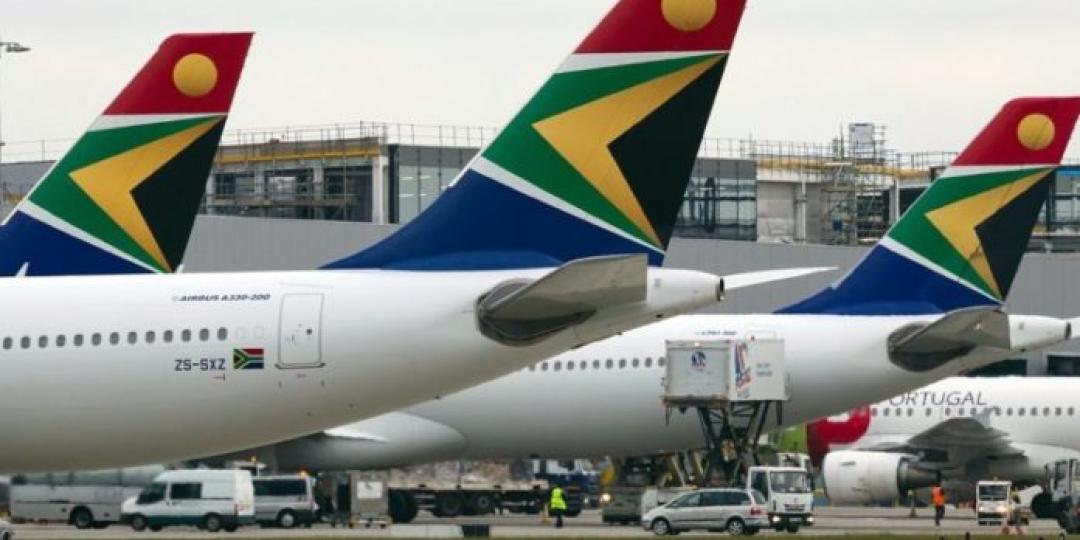SAA’s financial statements 2017/2018 were presented to Parliament on March 29, three years late. “The 2018 financial results weren’t released before because the auditors withheld their audit opinion, as SAA’s status as a going concern was at significant risk. This resulted in the group being placed in business rescue in December 2019,” said the annual report.
The fact that the SAA Group (comprising SAA, Mango, SAAT and Air Chefs) in that year made a loss of R5.4bn (€338.5m) on income of R29.4bn (€1.8bn) would probably hardly raise an eyebrow among punch-drunk South African taxpayers, especially when viewed against the R35.1bn (€2.2bn) in financial support the airline received from taxpayers from April 2018 to November 2021. Only R18.3bn (€1.1bn) of this amount related to funding for the business rescue plan.
The Auditor-General gave a qualified opinion on the basis of a slew of irregularities in the controls, record-keeping and accounts of the group, which, during the period, appear to have been a shambles. His report contained a litany of non-compliance issues, and an apparent disregard for controls, records and public accounting procedures.
Some points from the Auditor-General’s report were:
*“Property, aircraft and equipment – the SAA Group did not adequately review the useful lives and residual values and assess the property, aircraft and equipment at each reporting date as far back as financial year 2016) in accordance with International Accounting Standards (IAS) 16…”
*“…some of the property, aircraft and equipment were not recorded in the financial statements, while some were recorded but their existence could not be verified…”
*“Irregular expenditure – Section 55(2)(b)(i) of the PFMA requires the SAA Group to include particulars of irregular expenditure in the notes to the financial statements. The SAA Group did not include all irregular expenditure incurred in the notes to the financial statements…” Inadequate controls and incomplete records of irregular expenditure, meant the full extent was hidden.
*Fruitless and wasteful expenditure – Although the PFMA requires SAA Group to include particulars of fruitless and wasteful expenditure in the notes to the financial statements, these were not included, said the A-G. “As the SAA
Group did not have adequate controls to maintain complete records of fruitless and wasteful expenditure, I was unable to determine the full extent the fruitless and wasteful expenditure note. I was unable to obtain sufficient appropriate audit evidence to confirm the fruitless and wasteful expenditure incurred, as well as the amounts written off included in note 42…”
*“Trade and other payables – I was unable to obtain sufficient appropriate audit evidence that trade and other payables had been properly accounted for, due to the poor status of the accounting records and lack of systems of internal controls for the SAA Group. I was unable to confirm the trade and other payables by alternative means.”
“In addition, the SAA Group did not ensure that bank clearing accounts are reconciled regularly. As a result, transactions that related to trade payables were not cleared out of these accounts, leaving the trade and other payables balance understated and therefore not correctly valued as required by IAS39 Financial instruments: Recognition and measurement.”
*“Inventory – South African Airways Technical SOC Limited (SAAT), an SAA subsidiary, uses an inventory management system to record its inventory. I was unable to place reliance on this system due to the weaknesses in controls in the system…In addition, the existence of some inventory could not be verified…”
*“Maintenance costs – SAAT did not keep proper accounting records for maintenance material. As a result, I was unable to obtain sufficient appropriate audit evidence for maintenance material recorded as maintenance cost in the group consolidated figures…”
*Deferred tax asset and taxation – once again, inadequate systems and controls gave rise to unsupported and possibly inaccurate figures, including in SAA’s tax bill for the period.
*“Investments in subsidiaries – SAA incorrectly assessed its investments in Air Chefs SOC Limited (Air Chefs) and SAAT subsidiaries for impairment at the reporting date, as required by IAS 36, Impairment of assets requirements. This was as a result of an inadequate process to accurately determine the fair value
less cost to sell. Furthermore, SAA made use of discounted cash flows and nett asset values as part of their fair value valuation techniques; however, the figures coming from the subsidiaries for these calculations are misstated due to lack of proper systems and controls at the subsidiaries.”
The AG reported he was unable to obtain sufficient appropriate audit evidence for operating lease commitments due to the status of accounting records of Mango.
“SAA provided financial assistance to its subsidiaries without the approval of the shareholder in terms of a special resolution and without considering the solvency and liquidity of the company during the prior years, which was in contravention of section 45 of the Companies Act.”
*“Procurement and contract management – Goods, works or services were not procured through a procurement process which is fair, equitable, transparent and competitive, as required by section 51(1)(a)(iii) of the PFMA…”
*“Consequence management – I was unable to obtain sufficient appropriate audit evidence that disciplinary steps were taken against officials who had incurred irregular expenditure, as required by section 51(1)(e)(iii) of the PFMA. This was due to proper and complete records not being maintained as evidence to support the investigations into irregular expenditure…”
SAA – Takatso deal hits a bump
In other SAA-related news, a new controversy has emerged that could threaten the current deal in progress between SAA and its strategic equity partner (SEP), the Takatso Consortium.
The Standing Committee on Public Accounts (SCOPA), last week ruled that Pravin Gordhan, Public Enterprises Minister, must, within 14 days, provide clarity on the details of the deal with Takatso.
Treasury DG, Dondo Mogajane, had earlier told SCOPA that the Treasury had had no part in the deal at all, and Treasury had raised some concerns about some of the details and terms, and implied that the deal could contain regulatory irregularities.
























